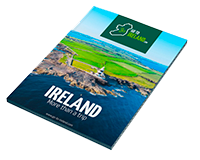Planning to visit Ireland for a few days or weeks? The idea of paying bank charges for every withdrawal or payment can quickly become a headache. The good news is that you can avoid unpleasant surprises by planning ahead. There’s no need to change banks for a two-week vacation, but a few tips and a good look at online banking can save you a lot of money!
1. Check your current bank’s charges
Even though Ireland is part of the euro zone, some banks may apply charges for withdrawals or payments abroad, even without currency conversion. Before you leave, remember to :
- Consult your general terms and conditions: Some establishments apply a flat-rate commission to each payment or withdrawal.
- Compare cards: Premium cards are sometimes more generous in terms of foreign fees, but the annual cost is often higher.
- Plan your withdrawals: If your bank applies a fixed amount per withdrawal, it’s better to withdraw a larger sum at once rather than multiplying small withdrawals.
Tip: find out your card’s foreign withdrawal and payment limits, to avoid unexpected blockages.
2. Opt for an online bank: the low-cost solution
It’s the secret weapon of many travelers: opening an account (sometimes free of charge) with an online bank can often eliminate or drastically reduce charges abroad, particularly in Ireland. These neobanks or prepaid cards offer many advantages, especially when it comes to free payments and withdrawals abroad. These advantages include
- Attractive rates: free or reduced-price withdrawals abroad, payments at no extra charge…
- Ease of use: manage your budget via an intuitive mobile application, block or unblock your card in 2 clicks, etc.
- Flexibility: you can top up your account instantly, or manage multiple currencies if you’re traveling outside the euro zone.
3. Preparing your budget on site
A trip to Ireland always requires a minimum of anticipation and preparation. It’s even essential when it comes to money and payment methods. Here’s what we recommend:
- Pay by card: In most Irish shops, you can pay directly by card. Check whether your bank applies a surcharge for transactions outside France (even in euros).
- Build up a small cash fund: This is useful for markets, local cafés or parking lots. It’s a good idea to carry some cash, but you don’t need wads of cash either. Ireland is very well equipped with payment terminals, except in the most remote corners (islands, and the Irish countryside far from towns and villages).
- Find out about exchange rates: If you’re coming from another country in the euro zone, the currency is the same (the euro). On the other hand, if you’re coming from outside the euro zone (Switzerland, Canada…), be prepared for rate variations and potential additional charges.
- Always keep your bank card receipts: they’re useful in the event of a payment terminal error, dispute resolution etc… Remember to ask for it with every transaction: this precious ticket could well save your life one day.
So much more to discover...
Planning a trip? Download our free guide!

Subscribe to our newsletter and receive our free ebook!
Discover the essentials of the country, its culture, history and must-see sights!